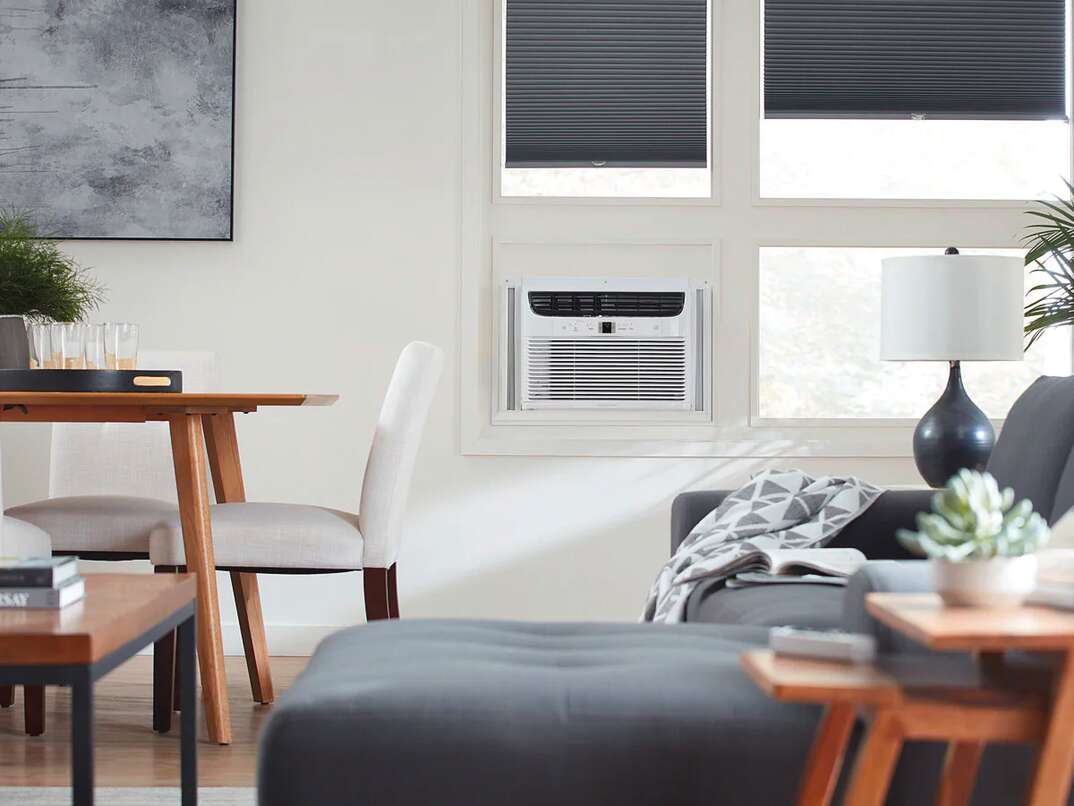What's a BTU?

Choosing an air conditioner can be a difficult process. And if you aren’t familiar with how air conditioner capacity is measured, you’re likely not sure where to begin.
Read More Heating and Cooling Articles
While BTU ratings may seem technical, it's worth understanding how they work because they can help you choose the correct air conditioning unit for your home.
What Does BTU Stand for and When Is It Used?
The letters stand for “British thermal unit.” A BTU describes the efficiency of an air conditioner unit by measuring how much energy it uses to cool your home per hour. You may also see BTUs used to describe the energy efficiency of other appliances, such as furnaces and heat pumps.
In other words, BTUs describe the cooling power of your air conditioner and other parts of your HVAC system. Your air conditioner's BTU rating tells you how many BTUs of heat it can remove from your home every hour. For example, a 15,000 BTU-rated air conditioner can remove up to 15,000 British thermal units per hour.
One BTU is the amount of heat required to increase or lower the temperature of 1 pound of water by 1 degree Fahrenheit. A single BTU is microscopic compared to the amount of energy you need to heat or cool your home each year— the U.S. Department of Energy says that most homes require an air conditioner providing 20 BTU of cooling capacity per square foot. Therefore, most residential air conditioners deliver cooling capacities of between 5,500 and 14,000 BTU per hour.
More Related Articles:
- Hiring an HVAC Tech? Here are 5 Top Tips
- What's in My HVAC Technician's Van?
- HVAC Out? 5 Common Causes and Quick Fixes for Each
- How Much Does an HVAC Filter Cost?
- HVAC Upkeep Costs: Everything You Need to Know
What's the Difference Between BTUs and Tonnage?
Tons don't refer to the unit's weight when used to describe air conditioners. Instead, they're another common unit used to describe an air conditioner's cooling capacity. 1 ton in the air conditioner world equals 12,000 BTUs, so a 1-ton air conditioner and a 12,000-BTU unit offer identical cooling power.
Typically, air conditioners have ratings in increments of half tons. Domestic air conditioners usually start at 1.5 tons, but you can purchase models delivering up to 5 tons of cooling power for large homes.
Choosing the correct size air conditioner for your living space is essential, whether you're working in BTUs or tons. A unit that's too large for your home will waste energy, while an undersized unit will have to work harder to keep your home cool, increasing the risk of breakdowns.
It's usually simpler to calculate your cooling needs in BTUs and then convert the result to tons. You can estimate what size air conditioner you need by multiplying the square footage of your living space by 20 to get your ideal cooling capacity in BTUs. Next, divide the result by 12,000 to determine the tonnage capacity you need.
However, this calculation only provides an estimate. An HVAC professional can inspect your home to determine the best air conditioner size.
Elocal Editorial Content is for educational and entertainment purposes only. Editorial Content should not be used as a substitute for advice from a licensed professional in your state reviewing your issue. Systems, equipment, issues and circumstances vary. Follow the manufacturer's safety precautions. The opinions, beliefs and viewpoints expressed by the eLocal Editorial Team and other third-party content providers do not necessarily reflect the opinions, beliefs and viewpoints of eLocal or its affiliate companies. Use of the Blog is subject to the
Website Terms and Conditions.The eLocal Editorial Team operates independently of eLocal USA's marketing and sales decisions.



